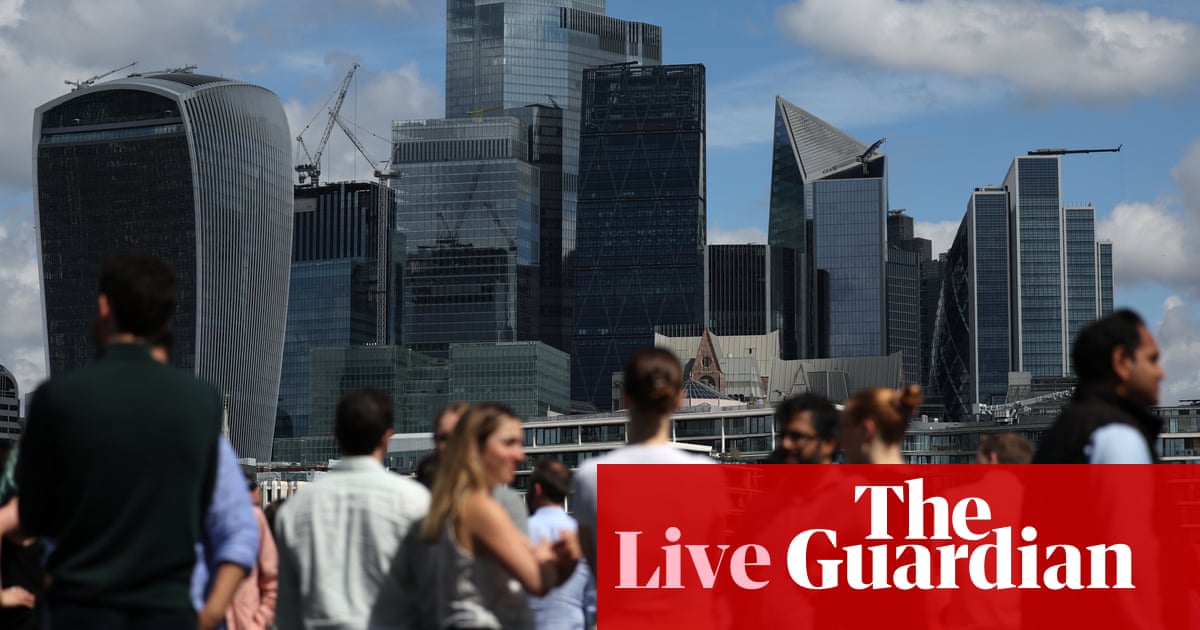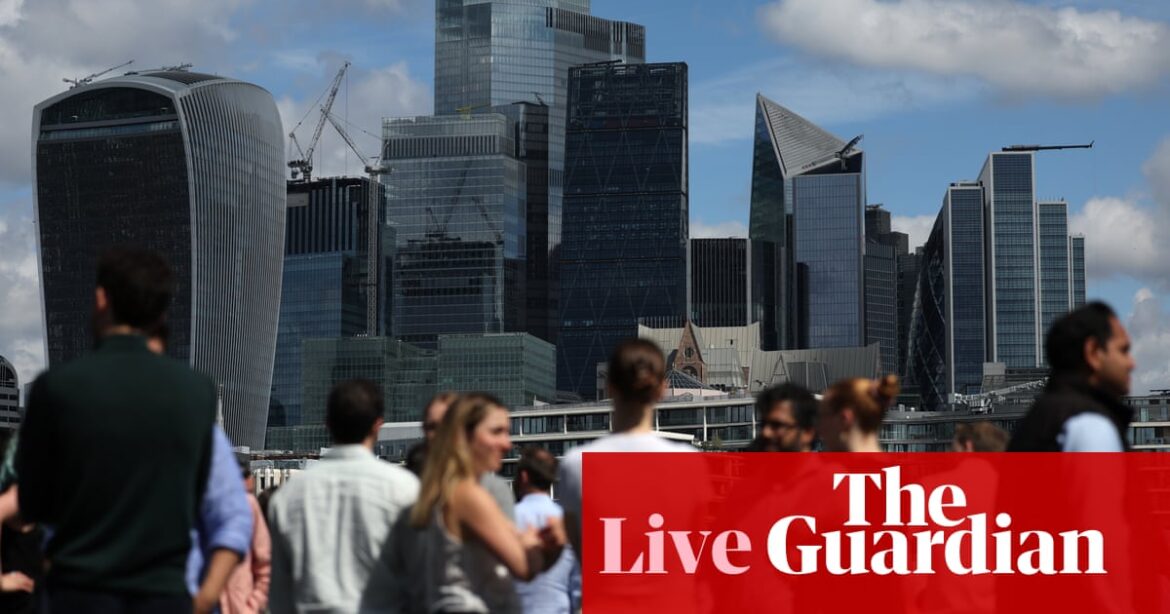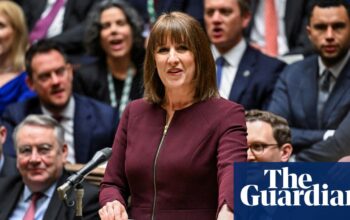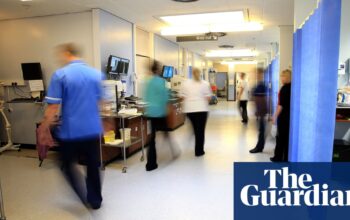
The UK ranked sixth in the G7 for growth in the third quarter, above Italy but below France, Germany and the US, which grew by o.4%, 0.2% and 0.7% respectively.
Figures released by the ONS on Friday showed that in the three months to the end of September – the first quarter under the new Labour government – services and manufacturing sector output slowed, indicating that uncertainty surrounding the budget and high interest rates contributed to a loss of momentum since the spring.
City economists had expected quarter-on-quarter growth to be 0.2%. Month-on-month GDP shrank by 0.1% in September, falling short of forecasts for growth of 0.2%.
But despite the slowdown, the money markets indicate there’s only an 18% chance of another cut to UK interst rates next month.
Here’s the full story:
And analysis:
Investors in pharmaceutical companies are selling off stock after Donald Trump nominated the anti-vaccine activist Robert F Kennedy Jr to lead the US Department of Health and Human Services.
RFK Jr has embraced numerous health-related conspiracy theories, and is one of the most persistent and influential vaccine deniers in the US.
Trump’s announcement sent shares in some of the world’s biggest pharmaceutical companies – including Moderna, AstraZeneca and GSK – falling on Friday morning.
The European Commission has forecast that Germany’s economy will shrink by 0.1% this year, casting a shadow over the upcoming general election.
One of Britain’s biggest property developers has reinforced the growing shift to a return to office working, saying that occupancy in its central London offices has grown to an all-time high and the value of its portfolio has returned to growth.
Typhoo Tea is to call in administrators, as Britain’s oldest tea brand struggles with more than £70m in debt amid a sales slump in the highly competitive drinks market.
interview that he would not “take away” available vaccines.
They added, though, that the overall prospects for biotech development ventures were seen as dimmed by his nomination, saying:
“The point is around sentiment, stance and perspective – that impacts biotech investors’ view of how FDA [the U.S. Food and Drug Administration regulator] and other HHS issues will evolve (ie not accelerating drugs and pro-biotech).”
The pound has dipped against the euro today, as traders have digested the worse-than-expected UK growth figures.
Sterling is down 0.3% at €1.199.
Joseph Dahrieh, managing principal at trading platform Tickmill, says the pound continues to face downward pressure:
Concerns and speculation surrounding the Bank of England’s (BoE) future rate decisions increased, as market participants question whether the BoE will slow its rate-cutting cycle, thereby dampening investor sentiment.
The pound’s trajectory will largely depend on the effectiveness of the UK’s new expansionary budget, which aims to stimulate growth but also risks reigniting inflation, adding further uncertainty to the outlook for UK monetary policy.
The UK hospitality industry are hoping that the summer slowdown might encourage the government to rethink their plans to raise employers’ national insurance contributions.
Kate Nicholls, Chief Executive of UKHospitality, says:
“These lacklustre growth figures make it clear that the UK economy is still in a very fragile place. How the Government approaches the economy and consumer confidence going forwards, in both its policy and its language, will matter enormously.
“Its policy to inflict £3.4 billion in costs on hospitality businesses in April is already having a negative impact on decision-making on investment and jobs, which will no doubt stifle economic growth once again.
Source: theguardian.com



